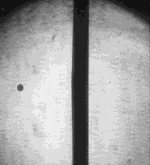
Photo from wikipedia
The interventions that are required for both the control and post-invasion restoration of native plant communities depends on several factors, including the efficacy of the measures that are used and… Click to show full abstract
The interventions that are required for both the control and post-invasion restoration of native plant communities depends on several factors, including the efficacy of the measures that are used and how these interact with environmental factors. Here, we report on the results of an experiment on the effects of mechanical removal and herbicide application on the invasive plant Gunnera tinctoria and how an extreme weather event impacted on the invader and on the recovery of native coastal grassland communities. Both removal protocols were largely effective in eradicating mature plants, but the mechanical removal treatment resulted in a major increase in the number of G. tinctoria seedlings, which was exacerbated by the extreme event. Nine months after removal, the number of native species had recovered to c. 80% of that in uninvaded grasslands. In contrast to seedlings, mature plants of G. tinctoria showed a significant reduction in above-ground production after the extreme weather event, although these had largely recovered after six months. Overall, our results indicate that post-control restoration of the plant community may be possible without further significant management interventions. Nevertheless, since some invasive plants survived, further monitoring is required to ensure that recolonisation does not occur.
Journal Title: Plants
Year Published: 2022
Link to full text (if available)
Share on Social Media: Sign Up to like & get
recommendations!